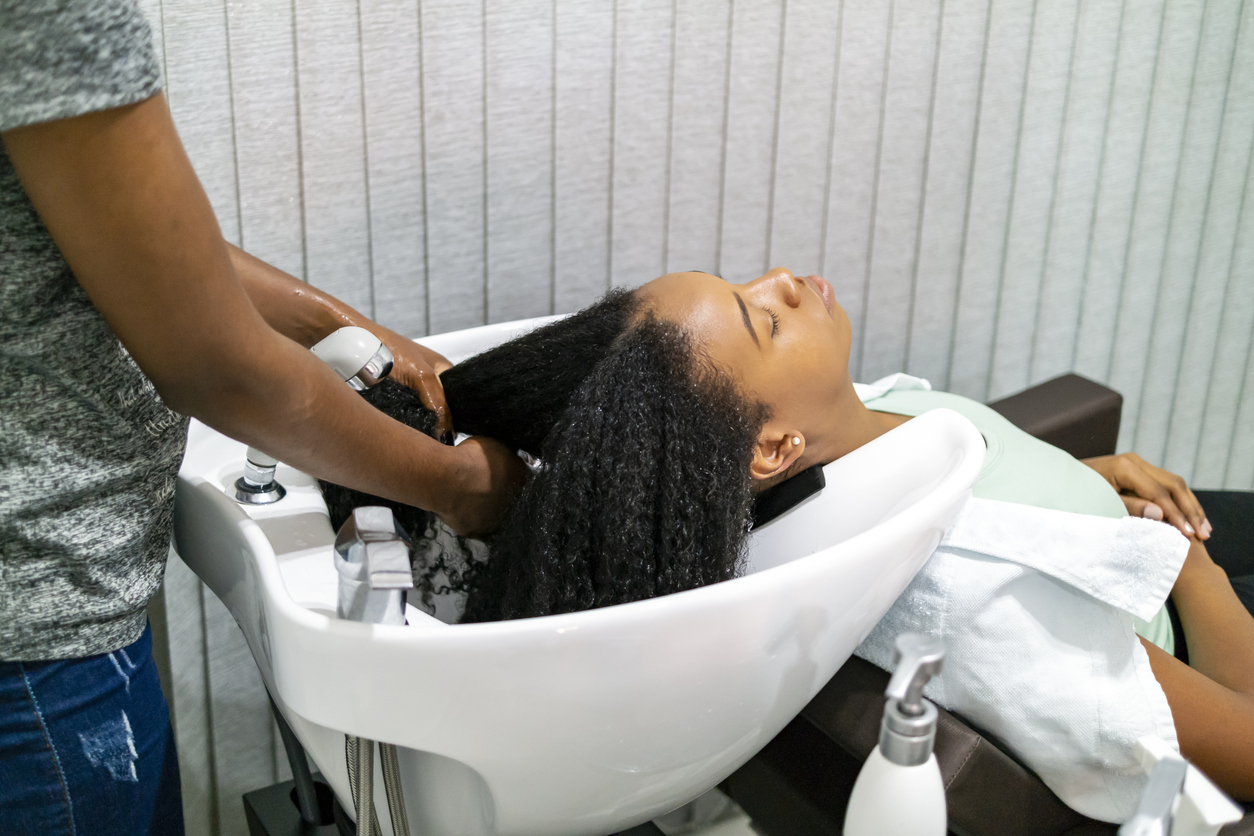FDA Proposes Ban on Chemical Hair Straighteners with Formaldehyde.

FDA Proposes Ban on Chemical Hair Straighteners with Formaldehyde
Separate studies led by Lauren Wise and Kimberly Bertrand have shown the potential dangers of these hair-straightening products, which are largely marketed to Black women.
In a move that health advocates are calling a “win for public health,” the Food and Drug Administration has proposed a rule to ban formaldehyde and other formaldehyde-releasing chemicals from hair-straightening and hair-smoothing products in the United States.
This action follows years of advocacy from health experts and policymakers to take action against these products, particularly hair relaxers, which are largely marketed to Black women.
The FDA labeled formaldehyde as a human carcinogen in 2016, and scores of data over the last 10-15 years suggest that these chemical hair products may increase the risk of developing several different cancers, as well as other adverse health outcomes.
Recent research by members of the SPH community supports this growing body of data. Earlier this year, a first-of-its-kind study found that use of these hair relaxers is linked to a slight reduction in one’s ability to conceive.
Published in the American Journal of Epidemiology, the study found that Black, Hispanic, and mixed-race individuals were more likely to use hair straighteners, and thus, more likely to be exposed to the toxic chemicals in these products. Current and former use of hair relaxers, greater frequency and duration of use, as well as sustained scalp burns from the products, were also associated with lower chances of becoming pregnant.
Phthalates, phenols, and parabens are a few of the chemicals in relaxers that may contribute to reduced fecundability. The researchers caution that the full set of ingredients is rarely included on the product label and more data are needed to better understand the specific mechanisms by which relaxers may affect fertility. However, the study underscores the racial disparities in exposure to toxic chemicals in beauty care and the adverse health consequences that may occur as a result.
“Our work underscores the importance of expanding research on the reproductive health effects of beauty product use to promote environmental justice and increase health equity,” says study lead author Lauren Wise, professor of epidemiology.
And in a new study published on October 10 in the journal Environmental Research, researchers from Boston University’s Black Women’s Health Study found that long-term use of chemical hair relaxers by postmenopausal Black women was associated with an increased risk of uterine cancer. The findings showed that people who used hair relaxers more than twice a year or for more than five years had a greater than 50 percent increased risk of developing uterine cancer, compared to women who rarely or never used hair relaxers.
“Black women are often underrepresented in health research and may have unique exposures that contribute to disparities in disease,” says corresponding author and SPH alum Kimberly Bertrand (SPH’05), associate professor of medicine at Boston University Chobanian & Avedisian School of Medicine and an epidemiologist at BU’s Slone Epidemiology Center. “This study fills an important gap in knowledge about the potential health effects of hair relaxer use, which is very common in Black women.”
The FDA announcement occurred just a few months after US Representatives Ayanna Pressley, and Shontel Brown penned a letter to FDA Commissioner Robert Califf, urging the agency to conduct a “thorough and transparent investigation” to determine whether hair-straightening chemical products on the market contain carcinogens that lead to an increased risk of uterine cancer.
“As a result of anti-Black hair sentiment, Black women have been unfairly subjected to scrutiny and forced to navigate the extreme politicization of hair,” the representatives wrote. “We urge the FDA to investigate the potential health threat posed by chemical hair straightening products. Consumers need to be reassured that the cosmetic products they use do not threaten their health.”